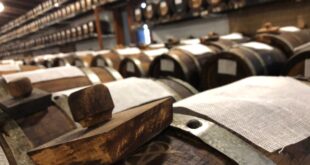A new policy document for the production of Balsamic Vinegar PGI has been created with the aim of reducing its imitations.
What is the PGI and what is its market situation? Balsamic Vinegar of Modena PGI (Protected Geographical Indication) is made with must (at least 20%) and wine vinegar (not less than 10%) and left to ripen for only two months. This procedure is different from the PDO Vinegar (Protected Designation of Origin) ones, the most valuable vinegar, made only with cooked grape must, according to strict production rules, and aged for years.
The PGI market is stable and mature, so the only thing to do for its producers is to make their product more attractive and of better quality from the point of view of its properties.
Among the changes to the new policy document for the production of Balsamic Vinegar PGI there is a greater attention to the choice and analysis of raw materials to ensure that producers and consumers have the best possible product, thus meeting their needs.
Another change is the increase in the density of the aged product.
In addition to the product itself, the packaging has also changed, it is also done to be able to meet the needs of consumers: in fact, bottles with different capacities will be used and no longer only the 250 cc capacity ones, to make it even easier to transport, such as for example in airplanes where there are restrictions on liquids in cabin luggage.
But what is the main reason for these changes? It is the incessant sale of non-certified products, which are sold as PDO or PGI even when they are not. Unfortunately, it takes some time to bring the new policy document for the production of Balsamic Vinegar PGI into force, because it has to be approved by the European Community and this can take about a year.
This is what Mariangela Grosoli, the president of the Consortium for the protection of Balsamic Vinegar of Modena, has explained in an interview.
L-Originale Balsamic Vinegar of Modena: www.l-originale.com
 (amazon.IT) (amazon.UK) (amazon.DE) (amazon.ES) (amazon.FR)
(amazon.IT) (amazon.UK) (amazon.DE) (amazon.ES) (amazon.FR)
 Use Balsamic Vinegar All you need to know about Balsamic Vinegar of Modena
Use Balsamic Vinegar All you need to know about Balsamic Vinegar of Modena


